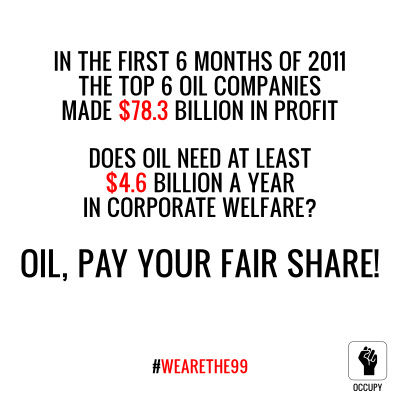 Schmidt in January 2010, after winning his court case.For nearly a month now, Canadian rancher Michael Schmidt has been engaged in a hunger strike. For over 17 years, Schmidt has been crusading for the right to distribute raw milk to a few hundred Ontario consumers who own shares in his herd of cows. He says he has been unable to convince anyone in a position of power to discuss how he and other raw dairy farmers can simultaneously service their herdshare members and abide by public health safety concerns. Instead, as he told me last week: “My farm has been raided by armed officers, my family has been terrorized, and I have been dragged through the courts — first being acquitted and then being found guilty.”
Schmidt in January 2010, after winning his court case.For nearly a month now, Canadian rancher Michael Schmidt has been engaged in a hunger strike. For over 17 years, Schmidt has been crusading for the right to distribute raw milk to a few hundred Ontario consumers who own shares in his herd of cows. He says he has been unable to convince anyone in a position of power to discuss how he and other raw dairy farmers can simultaneously service their herdshare members and abide by public health safety concerns. Instead, as he told me last week: “My farm has been raided by armed officers, my family has been terrorized, and I have been dragged through the courts — first being acquitted and then being found guilty.”
Now, he says, he wants a personal meeting with Ontario’s premier, Dalton McGuinty. If he doesn’t get the meeting? “I am prepared to go all the way,” he says.
As of the start of this week, the hunger strike has mushroomed into a major drama in both Canada and the U.S. Many in the raw-dairy-centered “food rights” movement see Schmidt as their spiritual leader after he spent the last two years defending himself in Ontario courts, as well as traversing the U.S. and Canada speaking about what he sees as the stonewalling by public health authorities over raw milk availability and safety. Some supporters have tried hard to dissuade him from the hunger strike, worried that his sense of commitment could lead to his death, but he has steadfastly held to his tactic.
The office of premier McGuinty says the matter of a meeting with Schmidt is “under review,” according to a press spokesperson. When might the review be complete? “I wouldn’t want to speculate on that,” he says.
Schmidt’s reputation received a major boost in early 2010, when he won a case brought by Ontario public health officials and the Ministry of Natural Resources, under the direction of the Ontario Attorney General. He served as his own lawyer, and a judge ruled that because Schmidt’s herdshare members were privately organized, they fell outside the Ontario prohibitions on raw milk. The Ontario authorities appealed, though, and an appeals court reversed the decision earlier this month. Schmidt appealed further, and launched the hunger strike.
In just the last few days, a Facebook page called Support Michael Schmidt has blossomed from a few hundred to nearly 4,000 members, and the office of Premier McGuinty has been inundated with calls and emails. McGuinty’s staff has taken to removing messages of support for Schmidt on the premier’s own Facebook page.
The drama being played out in Canada is occurring against the backdrop of a number of recent incidents involving proponents of raw dairy, primarily in the U.S.
For example, the U.S. Food and Drug Administration has declared, in response to a federal suit by the Farm-to-Consumer Legal Defense Fund, that we “have no absolute right … to any particular food.” The strong message is that the government is the final arbiter of which foods are safe and unsafe.
The FDA stated in the same legal brief that it enacted a prohibition on interstate sale of raw milk in 1987 “after spending 13 years collecting and evaluating scientific information regarding the health risks of unpasteurized milk, holding a public hearing that resulted in over 300 comments, and ultimately concluding that consumption of these products was linked to the outbreak of serious disease.”
As if to echo the FDA’s argument, a Wisconsin judge several weeks ago issued a ruling against two raw milk dairies in the state, not only declaring their operations illegal, but concluding, in part, that the plaintiffs “do not have a fundamental right to own and use a dairy cow or … a fundamental right to consume the milk from their own cow.”
San Diego County’s Department of Environmental Health has lobbied against a city proposal to allow residents to keep miniature goats, arguing that milk from the goats present a potential health risk. In a letter to the San Diego City Council, the county department noted that the U.S. Centers for Disease Control has issued an advisory “that specifically states, ‘To protect the health of the public, state regulators should continue to support pasteurization and consider further restricting or prohibiting the sale and distribution of raw milk and other unpasteurized dairy products in their states.'”
As if to underscore these restrictive interpretations of food rights, government agencies have targeted other food clubs and farms that privately supply consumers with nutrient-dense foods. Earlier this year, for example, the FDA assigned agents to carry out an undercover sting operation involving a Maryland food club of 2,000 people. It resulted in a federal suit against an Amish farmer in Pennsylvania who had been supplying the club with raw milk. In bringing felony criminal charges against three associates of Rawesome Food Club in Venice, Calif., last August, the Los Angeles County District attorney accused the three of not only selling raw milk illegally, but of mislabeling eggs and meat products, as well.
The outrage among the Maryland food club members led them to team with other activists to form a new food rights organization of their own called the Farm Food Freedom Coalition. The new organization is planning an intentional violation of the federal prohibition on interstate sale and distribution of raw milk via a Raw Milk Freedom Riders caravan that will travel from Pennsylvania to Maryland next Tuesday. The scheduled guest of honor at a rally to follow in front of the FDA’s headquarters will be Michael Schmidt. That is, if he’s still able to make the trip by then.
Regardless, Schmidt is raising the profile of the movement, and posing a major question in the process: Are food rights worthy of giving your life for?



